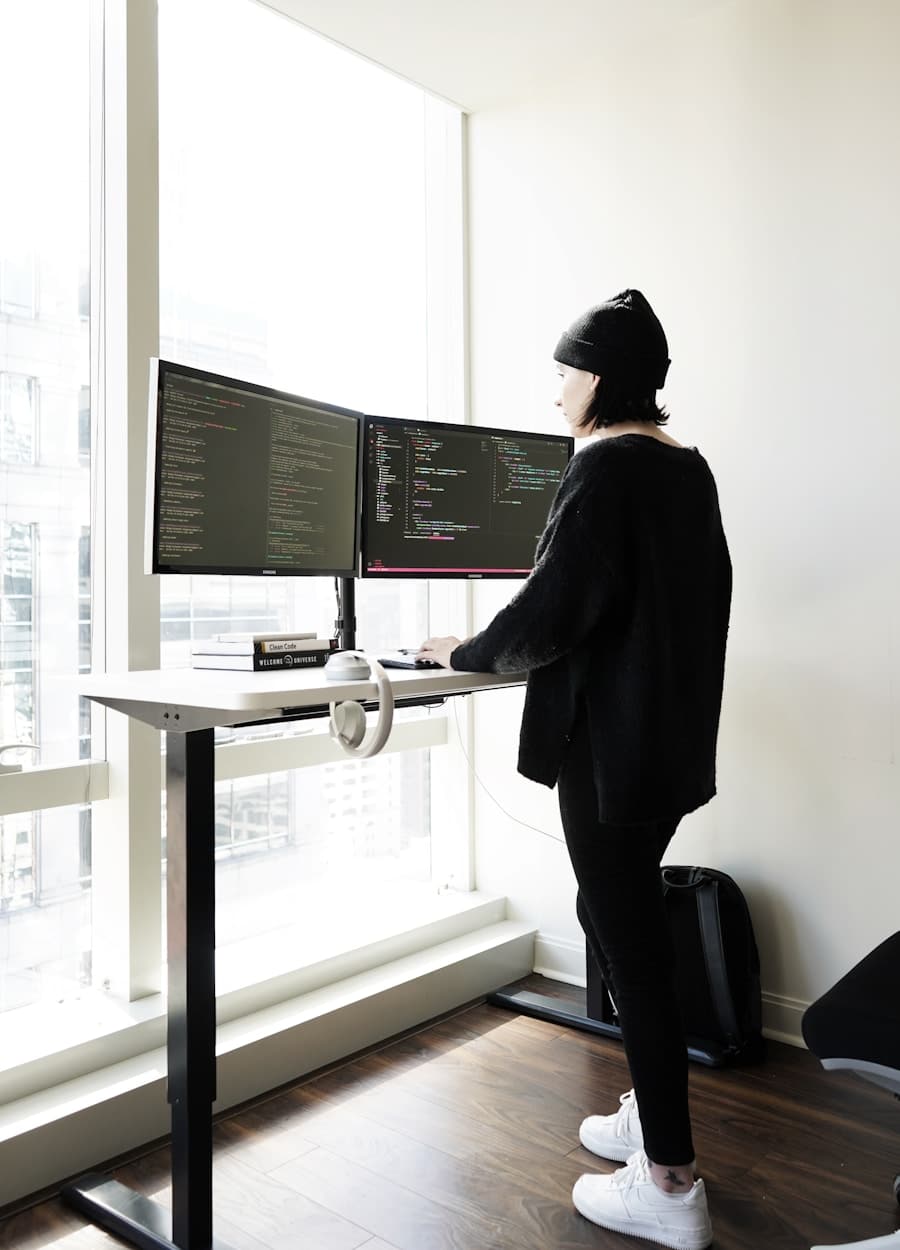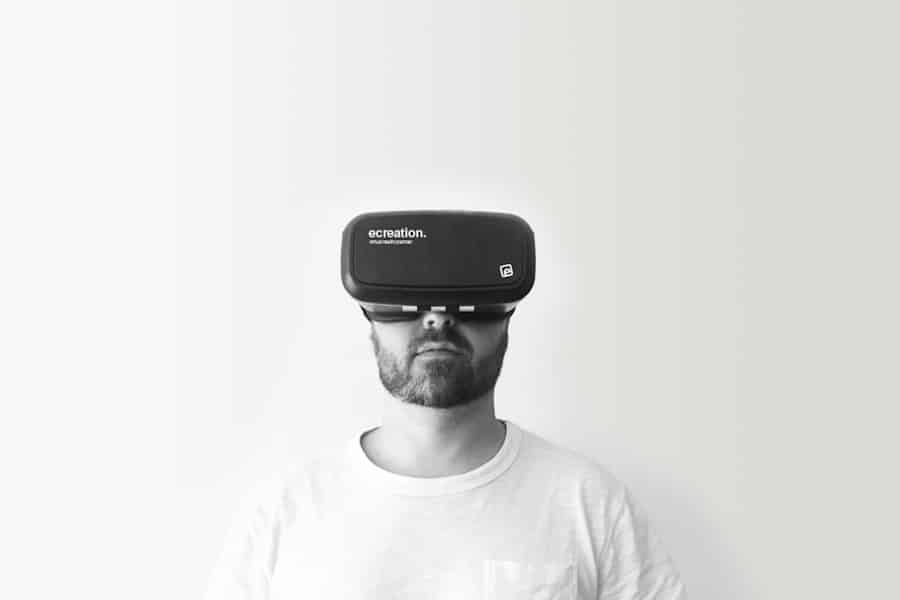The concept of the metaverse has gained significant traction in recent years, evolving from a niche idea in science fiction to a tangible reality that is reshaping various sectors, including employment. The metaverse refers to a collective virtual space created by the convergence of virtually enhanced physical reality and physically persistent virtual reality. It encompasses augmented reality (AR), virtual reality (VR), and the internet, allowing users to interact with a computer-generated environment and other users in real-time.
As organizations increasingly adopt remote work models, the metaverse presents a unique opportunity for conducting job interviews, enabling companies to transcend geographical barriers and engage with candidates in immersive environments. Remote hiring has become a necessity in the wake of global events that have shifted traditional workplace dynamics. The pandemic accelerated the adoption of digital tools for recruitment, leading to a surge in video interviews and online assessments.
However, these methods often lack the depth of interaction that in-person interviews provide. The metaverse offers a solution by creating a more engaging and interactive experience for both interviewers and candidates. By leveraging 3D environments and avatars, organizations can simulate real-world interactions, fostering a sense of presence that is often missing in conventional remote hiring practices.
Key Takeaways
- The metaverse is a virtual reality space where users can interact with a computer-generated environment and other users, and it is increasingly being used for remote hiring and job interviews.
- Metaverse-based job interviews offer advantages such as cost savings, accessibility, and the ability to showcase creativity and innovation.
- Challenges and concerns of metaverse-based job interviews include technological barriers, potential for bias and discrimination, and the need for digital literacy and accessibility.
- Metaverse-based job interviews have the potential to impact diversity and inclusion by providing opportunities for candidates who may face barriers in traditional hiring processes.
- Technology plays a crucial role in facilitating metaverse-based job interviews, including virtual reality platforms, AI-powered assessment tools, and cybersecurity measures.
Advantages of Metaverse-Based Job Interviews
One of the most significant advantages of conducting job interviews in the metaverse is the enhanced engagement it offers. Traditional video interviews can feel flat and impersonal, often leading to miscommunication or disengagement from candidates. In contrast, metaverse-based interviews allow participants to interact in a more dynamic setting, where they can use avatars to express themselves and engage with their surroundings.
Moreover, metaverse-based job interviews can significantly reduce logistical challenges associated with traditional hiring processes. Companies can connect with talent from around the globe without the need for travel or relocation, thus broadening their candidate pool.
This accessibility not only saves time and resources but also allows organizations to tap into diverse talent that may have been previously overlooked due to geographical constraints. For instance, a tech company based in Silicon Valley can easily interview candidates from Europe or Asia, fostering a more inclusive hiring process.
Challenges and Concerns of Metaverse-Based Job Interviews

Despite the numerous advantages, there are several challenges and concerns associated with metaverse-based job interviews that organizations must address. One primary concern is the technological barrier that may exclude certain candidates from participating fully. Not all individuals have access to high-speed internet or advanced hardware required for an optimal experience in the metaverse.
This digital divide can disproportionately affect candidates from lower socioeconomic backgrounds, potentially leading to inequities in the hiring process. Additionally, there are concerns regarding privacy and data security within virtual environments. As organizations collect data during interviews—such as biometric information or behavioral analytics—there is an inherent risk of data breaches or misuse.
Companies must ensure that they have robust security measures in place to protect sensitive information and comply with relevant regulations. Furthermore, the use of avatars raises questions about authenticity; candidates may choose to present themselves in ways that do not accurately reflect their true selves, complicating the assessment process for employers.
The Impact of Metaverse-Based Job Interviews on Diversity and Inclusion
The metaverse has the potential to significantly enhance diversity and inclusion within hiring practices. By breaking down geographical barriers, organizations can access a wider range of candidates from various backgrounds, cultures, and experiences. This increased diversity can lead to more innovative teams and improved problem-solving capabilities, as different perspectives contribute to creative solutions.
For example, a company looking to develop a product for a global market can benefit from insights provided by team members who understand different cultural contexts. Moreover, the immersive nature of the metaverse can create a more equitable interviewing environment. Candidates who may experience anxiety or discomfort in traditional interview settings may find it easier to express themselves in a virtual space where they can control their avatar’s appearance and interactions.
This level of comfort can lead to more genuine conversations and better assessments of candidates’ capabilities. Additionally, organizations can implement features such as anonymous feedback or peer evaluations within the metaverse, further promoting inclusivity by allowing diverse voices to be heard during the hiring process.
The Role of Technology in Facilitating Metaverse-Based Job Interviews
Technology plays a crucial role in enabling metaverse-based job interviews, as it provides the infrastructure necessary for creating immersive environments where interactions can take place seamlessly. Virtual reality headsets, augmented reality applications, and sophisticated software platforms are essential tools that facilitate these experiences. Companies like Meta (formerly Facebook) and Microsoft are investing heavily in developing technologies that support virtual collaboration, making it easier for organizations to conduct interviews in the metaverse.
Furthermore, advancements in artificial intelligence (AI) are enhancing the capabilities of metaverse-based interviews. AI-driven tools can analyze candidate behavior within virtual environments, providing insights into their communication styles, problem-solving abilities, and cultural fit. These tools can assist interviewers in making more informed decisions while also reducing biases that may arise during traditional interview processes.
Best Practices for Conducting Metaverse-Based Job Interviews

To maximize the effectiveness of metaverse-based job interviews, organizations should adopt best practices that ensure a smooth and engaging experience for all participants. First and foremost, it is essential to provide candidates with clear instructions on how to navigate the virtual environment prior to the interview. This includes guidance on accessing the platform, using avatars, and interacting with interviewers.
By familiarizing candidates with the technology beforehand, companies can alleviate potential anxiety and ensure that focus remains on the interview itself. Additionally, interviewers should be trained to adapt their questioning techniques to suit the unique dynamics of virtual environments. Engaging candidates through interactive scenarios or simulations can provide deeper insights into their skills and thought processes.
For example, instead of asking standard behavioral questions, interviewers might present candidates with a virtual problem relevant to the role and observe how they approach it collaboratively within the metaverse. This approach not only assesses technical competencies but also evaluates soft skills such as teamwork and adaptability.
The Future of Remote Hiring and Metaverse-Based Job Interviews
As technology continues to evolve, the future of remote hiring will likely see an increasing integration of metaverse-based job interviews into standard recruitment practices. Organizations will continue to explore innovative ways to leverage immersive environments for various stages of the hiring process—from initial screenings to final assessments—creating a more holistic evaluation experience for candidates. The rise of remote work is expected to persist even post-pandemic, making it imperative for companies to adapt their hiring strategies accordingly.
Moreover, as more industries embrace digital transformation, we may witness an expansion of metaverse applications beyond recruitment into onboarding and training processes as well. Virtual onboarding experiences could allow new hires to familiarize themselves with company culture and team dynamics in an engaging manner that transcends traditional methods. This evolution will not only enhance employee satisfaction but also improve retention rates by fostering a sense of belonging from day one.
Embracing the Evolution of Job Interviews in the Metaverse
The emergence of the metaverse represents a significant shift in how organizations approach job interviews and recruitment processes. By embracing this evolution, companies can create more engaging, inclusive, and efficient hiring experiences that cater to diverse talent pools across the globe. While challenges remain—such as technological barriers and privacy concerns—the potential benefits far outweigh these obstacles when approached thoughtfully.
As we move forward into this new era of remote hiring, it is crucial for organizations to remain adaptable and open-minded about integrating metaverse technologies into their recruitment strategies. By doing so, they not only enhance their ability to attract top talent but also position themselves as forward-thinking employers committed to innovation and inclusivity in an increasingly digital world.
In a recent article on enicomp.com, the top trends on LinkedIn for 2023 were discussed, highlighting the importance of virtual networking and online branding in the digital age. This ties in well with the future of metaverse-based job interviews and remote hiring, as professionals are increasingly turning to online platforms to connect with potential employers and showcase their skills. As technology continues to evolve, it is crucial for job seekers to stay ahead of the curve and leverage tools like LinkedIn to enhance their job search efforts. Check out the article here for more insights on the changing landscape of professional networking.
FAQs
What is the Metaverse?
The Metaverse is a collective virtual shared space, created by the convergence of virtually enhanced physical reality and physically persistent virtual reality.
What are Metaverse-based job interviews?
Metaverse-based job interviews are interviews conducted within virtual reality environments, allowing candidates and employers to interact in a simulated space.
How does remote hiring work in the Metaverse?
Remote hiring in the Metaverse involves the use of virtual reality technology to conduct the entire hiring process, from initial interviews to onboarding, without the need for physical presence.
What are the potential benefits of Metaverse-based job interviews and remote hiring?
Some potential benefits include cost savings on travel, the ability to assess candidates’ digital literacy, and the opportunity to create more immersive and engaging interview experiences.
What are the challenges of Metaverse-based job interviews and remote hiring?
Challenges may include the need for access to virtual reality technology, potential technical glitches, and the need to ensure a fair and inclusive hiring process for all candidates.
How might Metaverse-based job interviews and remote hiring impact the future of work?
These technologies have the potential to revolutionize the hiring process, making it more efficient and accessible, and may also lead to changes in the way teams collaborate and work together in virtual environments.

